NCERT Based Activity: Nature's Treasures | Science for Class 6 PDF Download
Activity 11.1: Let us experience
- Take a deep breath in, and then breathe out slowly.
- Take a deeper breath in again.
- Hold your breath for as long as you can and then breathe out slowly.
- How long can you hold your breath?
- How do you feel when you hold your breath?
Ans: (This is a Sample answer, students are advised to do the activity on their own)
I could hold my breath for about 20 seconds. At first, I felt normal, but after some time, I felt a little uncomfortable and wanted to breathe. When I breathed out slowly, I felt relaxed.
Activity 11.2: Let us make and decorate
- Take a square paper of size 15 cm x 15 cm, a pair of scissors, an all-pin and a soft stick.
- Follow the instructions shown in Figure to make a firki.
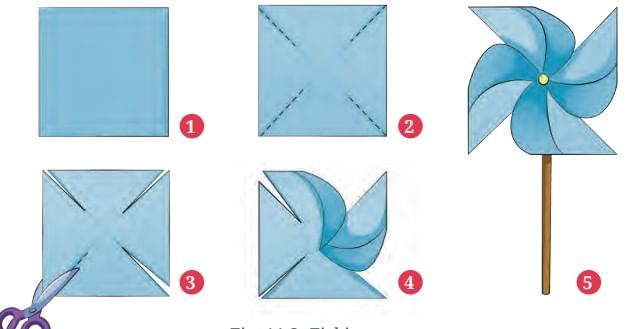
Ans: (This is a Sample answer; students are advised to do the activity on their own.)
1. I took a square paper of 15 cm × 15 cm.
2. I drew two diagonal lines and cut along them carefully.
3. Then I folded the alternate corners to the centre.
4. I fixed them with an all-pin on a soft stick.
5. My colourful firki was ready, and when I blew on it, it started spinning.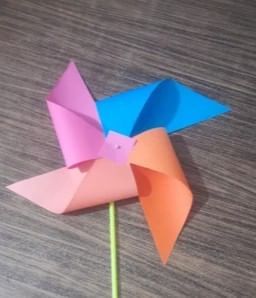
I really enjoyed making the firki. It was fun to see it spin so fast!
Activity 11.3: Let us find out
Fill Column II and Column III in the Table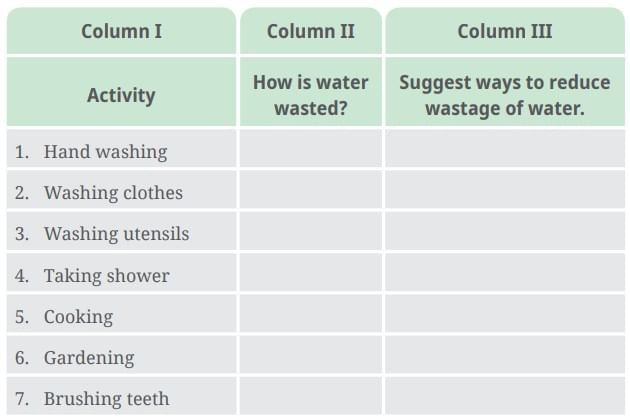
Ans: 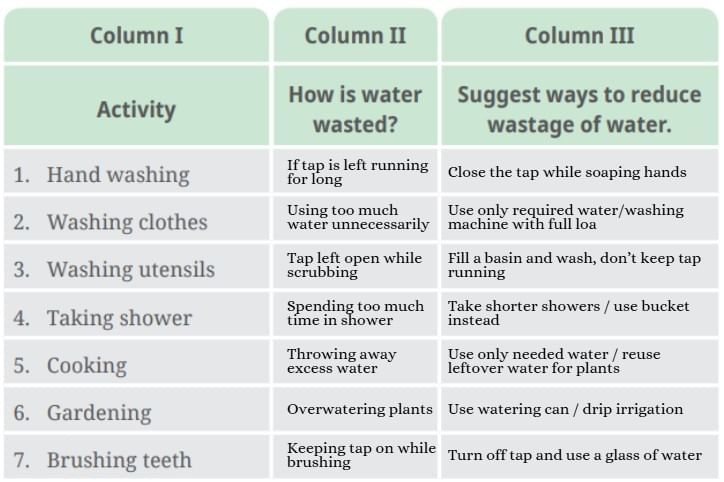
Activity 11.4: Let us investigate
- Collect samples of soil from different areas around your home and school.
- Guess what could be there in different soils.
- Observe carefully each soil sample and note its colour.
- Touch each soil sample and feel its texture.
- Observe the soil samples with your naked eye. If you have a magnifying lens, look at the soil through it.
- Record your observations in Table.
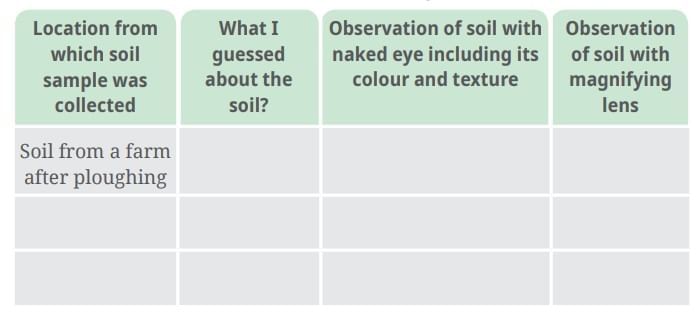
- Is there any difference between your guess and what you can actually observe when you look closely?
- Do you see any differences in the soil samples taken from different places?
- Do you see differences in what you are able to observe with your naked eye and what you can observe with a magnifying lens?
Ans: (This is a Sample answer; students are advised to do the activity on their own) 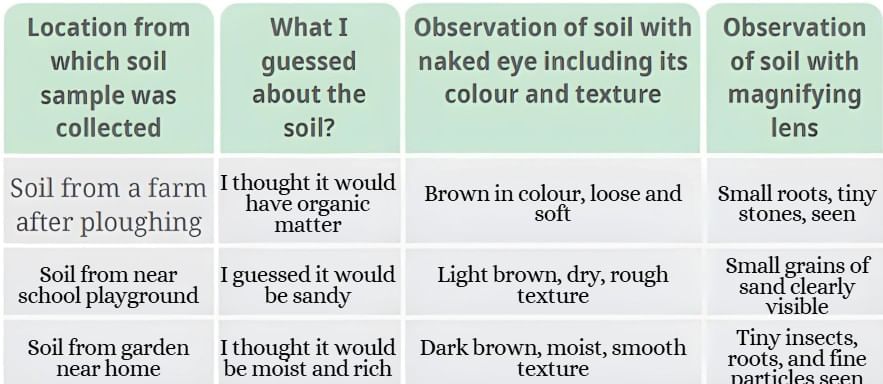 Yes, there were differences between my guesses and the actual observations. For example, the farm soil looked more fertile than I thought, and the garden soil had many tiny insects that I could only see with a magnifying lens. The soil samples from different places were not the same in colour and texture. With the naked eye, I could see only colour and roughness, but with the magnifying lens, I noticed fine particles, small stones, roots, and even insects.
Yes, there were differences between my guesses and the actual observations. For example, the farm soil looked more fertile than I thought, and the garden soil had many tiny insects that I could only see with a magnifying lens. The soil samples from different places were not the same in colour and texture. With the naked eye, I could see only colour and roughness, but with the magnifying lens, I noticed fine particles, small stones, roots, and even insects.
Activity 11.5: Let us conduct a survey
- Conduct a survey of vehicles in your neighbourhood.
- Which types of vehicles are there? What types of fuels do they use?
- Record the information that you collect in Table.
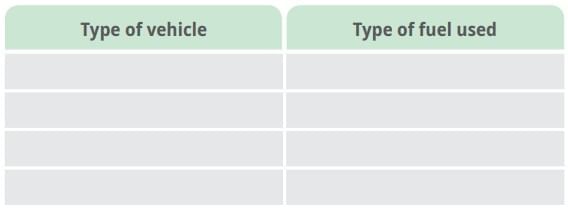
Ans: (This is a Sample answer; students are advised to do the activity on their own) 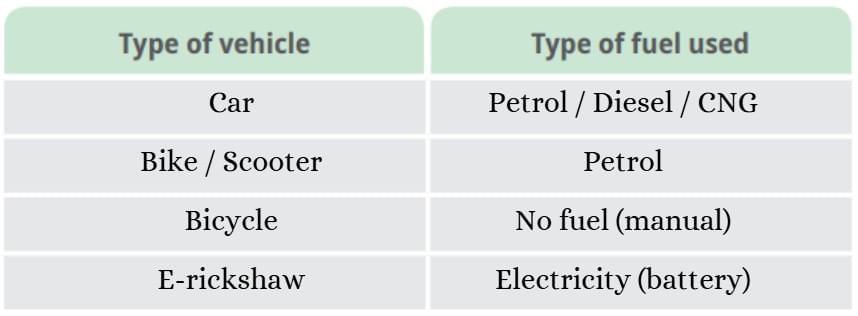
Activity 11.6: Let us make a list of natural resources used
Make a list of activities you do in your daily life and write down the natural resources used directly or indirectly for each activity. In Table, some items are already filled in. Using them as a guide, fill the remaining blank rows.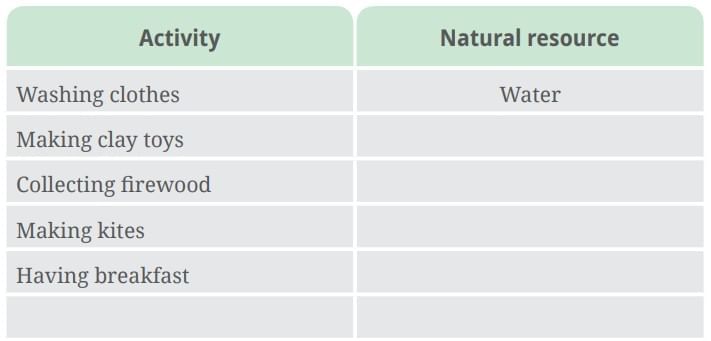
Ans: (This is a Sample answer; students are advised to do the activity on their own)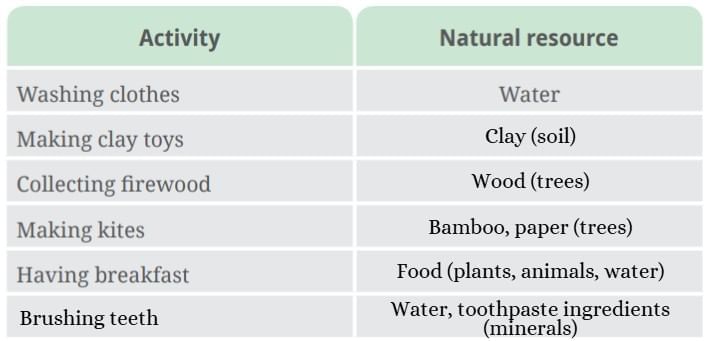
|
87 videos|376 docs|27 tests
|
FAQs on NCERT Based Activity: Nature's Treasures - Science for Class 6
| 1. What are some examples of natural treasures found in nature? |  |
| 2. Why is it important to conserve nature's treasures? |  |
| 3. How do human activities impact nature's treasures? |  |
| 4. What are some traditional practices related to the use of nature's treasures? |  |
| 5. How can individuals contribute to the conservation of nature's treasures? |  |





















